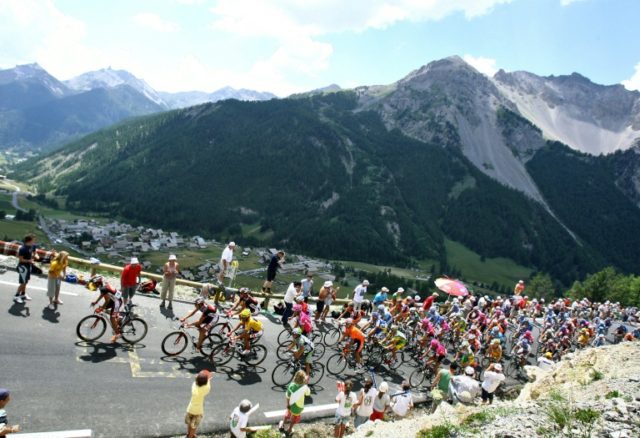Saint-Lô (France) (AFP) – For the past decade doping has been a hot topic at the Tour de France but this year it will be taking a back seat to another form of cheating: technological fraud.
EPO, CERA and blood doping were the villainous watchwords at the Tour over the last 10 years but now it is the scourge of technological doping which is creating a buzz.
Rumours have been rife for years that motorised bicycles have been used to gain an unfair advantage at major cycling races but until earlier this year, none had ever been found in competition.
The idea had developed into something of an urban legend with many questioning whether the media were simply paranoid but then Belgian teenager Femke Van den Driessche was caught with a motorised bicycle at the Cyclo-cross world championships in Belgium in January and the bogeyman became real.
Van den Driessche was subsequently banned for six years.
Authorities are taking the issue seriously with a thermal camera set to be used at the Tour for the first time to try to trip up the cheats.
With greater scrutiny it would be foolhardy in the extreme for anyone to attempt to use a motorised bicycle but cheats have been brazen in the past, not least the likes of Lance Armstrong or Floyd Landis.
Reigning Tour de France champion Chris Froome will come under particular scrutiny, not least due to the treatment he received a year ago.
A French television programme that ran during the Tour was dedicated almost entirely to trying to prove he was using a motorised bicycle on the 10th stage last year when he rode away from his rivals to claim the stage victory and a lead he would never relinquish.
– Incredulity –
Power data was produced to try to demonstrate that Froome’s performance was out of the ordinary, but his Sky team countered that with their own statistics to show that he was merely riding within his own capabilities.
His performance was, like his victory up to Ax 3 Demaines in 2013 — when he also won the Tour — met with incredulity and it will be interesting to see this year whether the Kenyan-born athlete will manage a similar feat.
Should he do so, his bike will be checked immediately for signs of a motor, but even if that should come up clean, Froome is unlikely to be exonerated of all suspicion.
There is an almost toxic atmosphere in cycling these days, coming not just from media scrutiny but also sceptical fans — many simply don’t believe cyclists are riding clean.
During their highly succesful 2015 Tour, Froome and his Sky team-mates were subjected to some nasty treatment.
Eventual winner Froome was doused with urine, he and his team-mates were spat at, Richie Porte, who has since moved on to BMC, was punched and the entire British team were met with insults and abuse from a minority of supporters lining the route — although the team captain was at pains to insist that the majority were supportive.
The cameras will be used during the race as well as after each stage while the International Cycling Union will continue to use magnetic resonance screening as well.
The French government is also preparing legislation to make technological fraud a criminal offence, further acting as a deterrent to would-be cheats.
What remains to be seen now, though, is whether Froome can repeat one of his searing and dominant mountain stage victories and then walk away from it without an eyebrow being raised.
If that is the case, then technological traps will really be working.

COMMENTS
Please let us know if you're having issues with commenting.